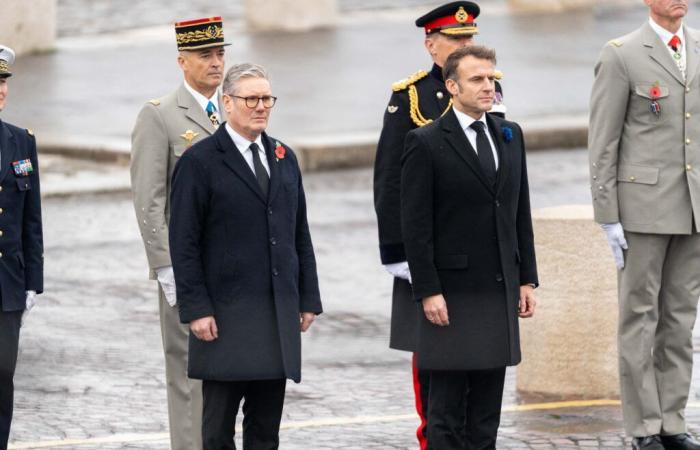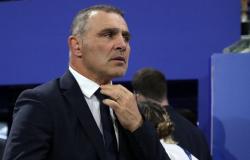
Last February, Emmanuel Macron caused an outcry by saying that sending Western troops on the ground to Ukraine should not “be ruled out” in the future. A few months later, according to the newspaper The WorldFrance and the United Kingdom are considering the establishment of a European coalition focused on security in Ukraine. This reflection particularly echoes the election of Donald Trump to the White House and given his statements unfavorable to the interests of kyiv.
According to Le Monde, this idea of a Franco-British coalition was launched during the meeting between British Prime Minister Keir Starmer and President Emmanuel Macron during the November 11 ceremonies. If Berlin remains reluctant, other countries such as the Baltic States and Poland could support this initiative. Jean-Noël Barrot, French Minister of Foreign Affairs, stressed the need not to set “ red lines » regarding support for Ukraine in order to leave strategic doubt. Questioned by the BBC, he did not rule out sending French soldiers on the ground, while insisting on the flexibility of the options studied.
But for the experts, “ It's not about sending soldiers to fight.” as explained to the JDD General Jérôme Pellistrandi, Defense consultant. He continues: “the idea is to think about what will happen after the war to give security guarantees to Ukraine because the new American administration wants to find a rapid peace ». For Volodymyr Zelensky, obtaining security guarantees from the allies remains a priority before any negotiations and the cessation of hostilities. Sending troops could meet this requirement, in particular to supervise a possible ceasefire and deter a new Russian offensive.
The rest after this ad
This perspective therefore raises the question of direct military engagement by Europeans. According to General Pierre Schill, chief of staff of the French army, a coalition of European troops could be considered to monitor the front line and prevent any offensive relaunch by Russia. This scenario, inspired by the so-called “tripwire” model, consists of deploying advanced forces to deter any escalation, without however triggering a massive intervention.
European leadership put to the test by Trump
But the idea of such a deployment poses major challenges. In the absence of clear leadership from Germany, weakened by its internal political crises, France and the United Kingdom appear as the only natural candidates to lead a coalition. Their status as nuclear powers and their capacity to project forces lend credibility to this ambition.
A major development
Also companies like Défense Conseil International (DCI), affiliated with the French state for 34%, say they are ready to intensify their activities in Ukraine, particularly in terms of maintenance of French equipment sent to kyiv. Made up of 80% former military personnel, DCI would also be ready to continue training Ukrainian soldiers in Ukraine, as it already does in France and Poland. Their partnership with British companies such as Babcock could accelerate this cooperation. Furthermore, the Biden administration recently lifted the ban on American private military companies operating in Ukraine, paving the way for a more visible Western presence for the maintenance of military weapons transferred to kyiv, such as the Patriot missiles or the F-16s.
As the United States begins to redefine its role and Moscow maintains military pressure, the stakes go beyond the battlefield and Europe faces a crucial choice: assume a strategic leadership role or remain in the shadows of a conflict dictated by others.
The sending of troops or contractors, although still hypothetical, marks a major evolution in the European approach. A step which could redefine not only the role of the European Union in this conflict, but also its capacity to establish itself as a credible military actor on the international scene. As General Schill recalled, “ you have to be able to weigh “. It remains to be seen whether Europe has the political will – and the means.
France





